Do Black People Need to Wear Sun Screen
We may earn commission from links on this page, but we only recommend products we love. Promise.

JADE PURPLE BROWN
It's always gone without saying—at least, for me—that Black lives matter. It's also clear that some folks need to be reminded of this, as they were when the world recently came together to protest police brutality and racism. And while a story on SPF might seem minor in the fight for equality, it's important to see self-care as a pretty revolutionary act of self-preservation that shouldn't be taken lightly. I also know a lot of you are probably thinking, Do Black people really need SPF? Absolutely, 100 percent yes, we do. Let me break it down for ya.
While it's true that Black people are less likely to get diagnosed with skin cancer than other racial groups, when they *do* get diagnosed, the outcome is often worse. According to The Skin Cancer Foundation, the five-year melanoma survival rate (aka the likelihood that you'll still be alive five years after diagnosis) is 70 percent for Black patients versus 94 percent for white ones.

There are a million frustrating factors behind this, but there is one universal and relatively accessible thing that can help: SPF. Ask any dermatologist (like, any derm in the entire world) and they'll tell you the best way to prevent skin cancer—no matter your skin color—is by using sunscreen.
Except according to a recent Cosmo poll, 1 in 3 Black women never, ever wear SPF. So don't feel ashamed if you don't have any on—this is a widespread issue. And the idea that we don't need it—that Black and brown skin is immune to the sun's harmful rays—is a myth that's been perpetuated for waaay too long.
Not helping: sunscreen ads and skin cancer warnings that don't reflect or aren't directed to people of color, which further push the idea that we don't need to worry. Also not helping: all the thick, white lotions that don't even come close to blending into our beautiful brown skin.
I know you're likely wrapped up in the current dumpster fire that is the world today, but using daily SPF is a small (and pretty damn significant) way to take care of yourself and show your skin some love. So keep reading for why every Black-girl SPF myth is BS, how to check your skin for moles and marks at home, and the best sunscreens for melanin-rich faces and bodies.


Your At-Home Skin Check Guide

Don't Buy an SPF That Doesn't Mark Off All These Boxes

Black Girl-Approved Sunscreens

3 SPF "Facts" You Need to Stop Believing RN

Nope. Melanin alone is definitely not enough to protect you from the sun, says dermatologist Saya Obayan, MD. Studies suggest that the darkest of skin tones might have a built-in SPF of up to around 13, explains dermatologist Shani Francis, MD. But that's not even close to the recommended daily SPF 30 or higher.

Just because you don't turn red doesn't mean your skin isn't being damaged. "UV rays can still mess with genetic materials in your skin cells," says Dr. Obayan. If you get enough DNA damage, your cells can start to grow out of control, which can lead to cancer.

Sorry to be the bearer of bad news, but Black does crack—it just happens a little later than in other racial groups. If you want to invest in your future self's skin (she would be v grateful), protecting yourself from the sun with daily SPF is the way to do it. "With time, UV damage breaks down collagen and elastin—the proteins in skin that keep it firm and smooth—leaving you with leathery-looking skin," says Dr. Obayan.


Black people are less likely to get skin cancer—but diagnoses still happen, and by then, the disease is usually in an advance stage, meaning it's more deadly and harder to treat. In an ideal world, we'd all have regular skin checks from a doctor, but I get it. A global pandemic, shitty insurance, lack of local derm care...yeah. Here's how to check yourself each month at home, according to Shani Francis, MD.
Step One:
Start by checking your face for anything new, changing, or unusual (think: a wart or scab that won't heal, a bump that's grown in size, or moles that are darker than the other moles you might have). Including your lips, mouth, nose, and behind your ears. Use a full-length mirror and a hand mirror to get an extra clear look.
Step Two:
Don't forget about your scalp! Grab a blow dryer to move your hair out of the way and throughly inspect each part. If you're rocking a protective hairstyle—and depending on how long you keep the look—this method won't be as easy. Make sure to ask your hairstylist to give your scalp a good check before they start styling your hair.
Step Three:
Keep moving down your body, making sure to check ev-er-y-thing, from under your fingernails to the soles of your feet. Sounds weird, but the proportion of skin cancers that occur in non-sun-exposed sites is actually greater in populations with darker skin, so you gotta be thorough.
Step Four:
If you see anything on your skin getting darker, changing in size or shape, itching, or bleeding, make an appointment to get checked out by a pro ASAP. If booking an in-person appointment isn't possible, schedule a virtual consultation.


A "don't-buy-a-sunscreen-that-doesn't-do-all-these-things" checklist
- It's at least SPF 30 or higher. Anything less won't give you adequate protection.
- It offers broad-spectrum coverage to protect your skin from both UVB and UVA rays (each can cause skin cancer).
- It's noncomedogenic, meaning it won't clog your pores or cause acne—amen.
- It's labeled "clear" or "sheer", which basically means it won't leave your skin looking chalky or ashy.
Best sunscreens for oily-ass skin
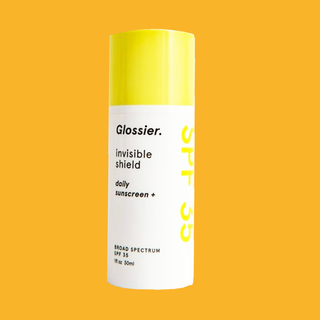
Glossier Invisible Shield
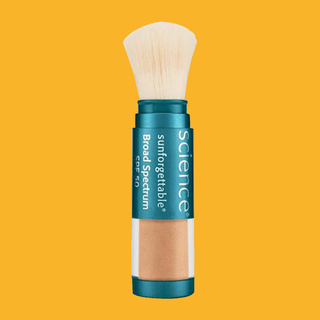
Colorescience Sunforgettable Total Protection Brush-On Shield SPF 50
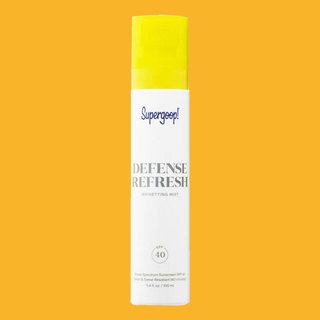
Supergoop! Defense Refresh (Re)setting Mist SPF 40
Best sunscreens for dry, thirsty skin
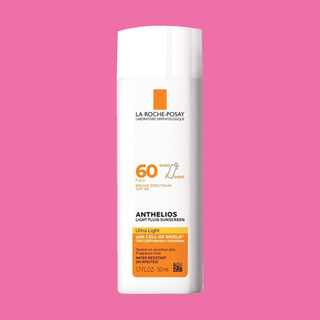
La Roche-Posay Anthelios 60 Face Sunscreen
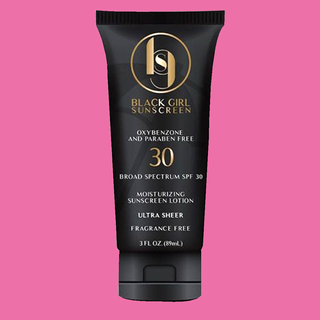
Black Girl Sunscreen SPF 30
blackgirlsunscreen.com
$18.99
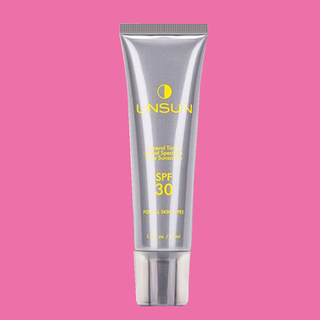
Unsun Mineral Tinted Face Sunscreen
unsuncosmetics.com
$29.00
Best sunscreens for combo skin
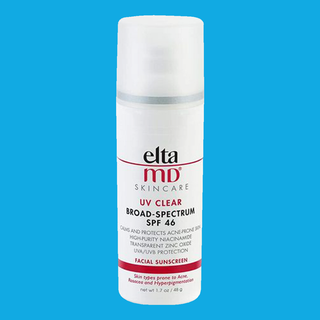
EltaMD UV Clear Facial Sunscreen Broad-Spectrum SPF 46
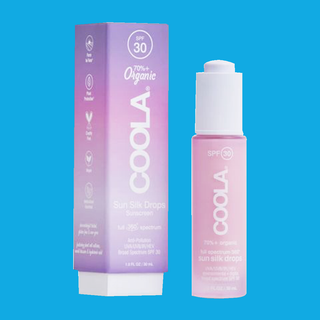
Coola Full Spectrum 360° Sun Silk Drops Organic Sunscreen SPF 30
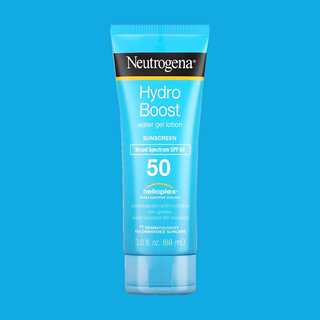
Neutrogena Hydro Boost Sunscreen SPF 50
The final word
Basically, the moral of the story is that even though your melanin is *magical*, it's not sun-resistant, and all that UV exposure can do some serious damage. You should be slathering on the SPF every damn day, regardless of your skin tone. And now, after reading this, you have no more excuses, k?

Ama Kwarteng Ama Kwarteng was previously the associate beauty editor at Cosmopolitan.
This content is created and maintained by a third party, and imported onto this page to help users provide their email addresses. You may be able to find more information about this and similar content at piano.io
Do Black People Need to Wear Sun Screen
Source: https://www.cosmopolitan.com/style-beauty/beauty/a33535565/black-girl-guide-to-spf/
0 Response to "Do Black People Need to Wear Sun Screen"
Post a Comment